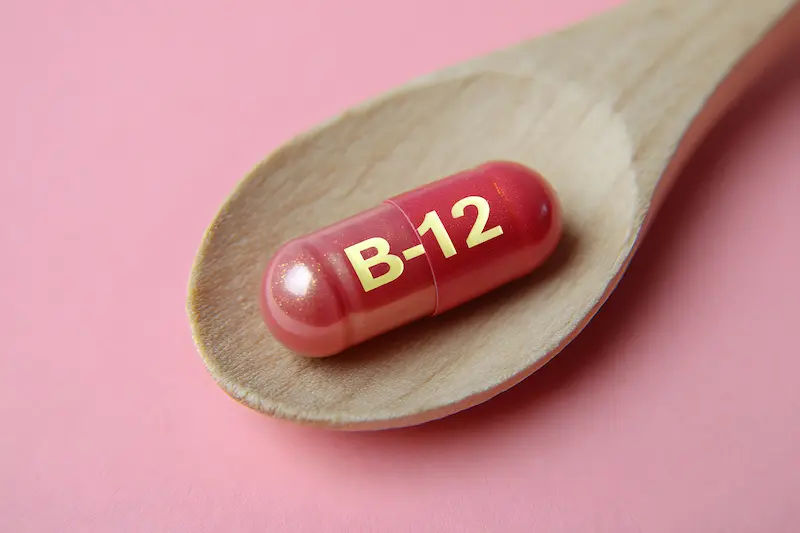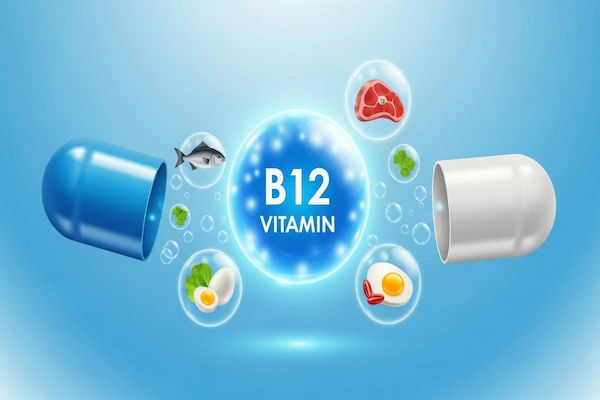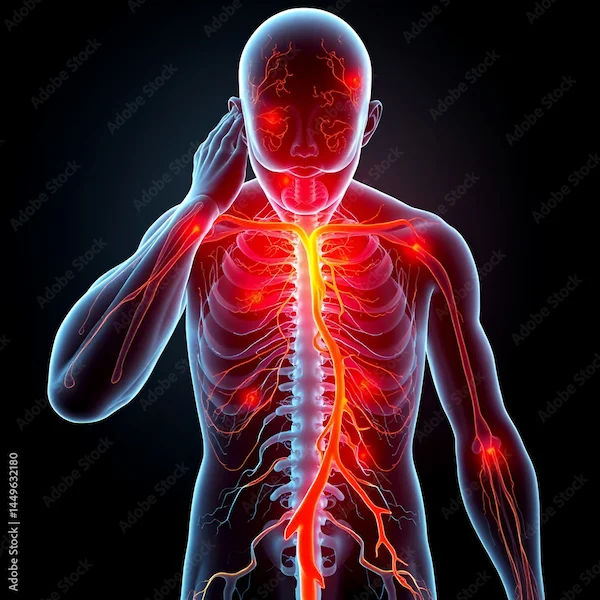Importance of Vitamin D Beyond Bone Health
Discover the importance of Vitamin D beyond bone health. Learn how it supports immunity, mood, muscle strength, and overall well-being.


Introduction
When we think of Vitamin D, the first thing that comes to mind is strong bones. While it’s true that Vitamin D plays a crucial role in calcium absorption and bone health, its benefits go far beyond that. This "sunshine vitamin" is essential for immune function, heart health, mood regulation, and much more.
If you’ve been told you have a Vitamin D deficiency, or if you simply want to understand why this nutrient is so important, this article will guide you through its lesser-known benefits and how to maintain optimal levels.
What is Vitamin D?
Vitamin D is a fat-soluble vitamin that acts more like a hormone in the body. Unlike other vitamins, our body can produce it when our skin is exposed to sunlight. It can also be obtained from certain foods and supplements.
There are two main forms:
• Vitamin D2 (Ergocalciferol) – Found in plant-based foods and supplements.
• Vitamin D3 (Cholecalciferol) – Produced in the skin from sunlight and found in animal-based foods.
D3 is more effective at raising and maintaining Vitamin D levels in the body.
Consult a General Physician for the best advice
Why is Vitamin D Important Beyond Bone Health?
Vitamin D does more than just strengthen your bones. Vitamin D helps boost immunity, regulate mood, and enhance overall well-being.
1. Strengthens the Immune System
Vitamin D plays a key role in activating immune defenses. Low levels are linked to:
• Increased risk of infections (colds, flu, respiratory illnesses)
• Higher susceptibility to autoimmune diseases (like rheumatoid arthritis, multiple sclerosis)
• Poor wound healing
2. Supports Heart Health
Studies suggest that Vitamin D helps:
• Regulate blood pressure
• Reduce inflammation in blood vessels
• Lower the risk of heart disease and stroke
3. Boosts Mood and Mental Health
Low Vitamin D levels are linked to:
• Depression and anxiety
• Seasonal Affective Disorder (SAD)
• Cognitive decline in older adults
4. Helps in Diabetes Management
Vitamin D improves insulin sensitivity, which may help:
• Lower the risk of Type 2 Diabetes
• Improve blood sugar control in diabetics
5. May Reduce Cancer Risk
Some research suggests that adequate Vitamin D levels may lower the risk of certain cancers, including:
• Breast, colon, and prostate cancer
6. Supports Muscle Strength
Vitamin D helps maintain muscle function, preventing:
• Weakness and fatigue
• Falls in older adults
Who is at Risk of Vitamin D Deficiency?
Certain groups are more likely to have low Vitamin D levels:
• People with limited sun exposure (office workers, those who cover their skin, elderly)
• Darker-skinned individuals (melanin reduces Vitamin D production)
• People with obesity (Vitamin D gets stored in fat, making it less available)
• Those with digestive disorders (Crohn’s disease, celiac disease)
• Breastfed infants (if the mother is deficient)
• Older adults (skin produces less Vitamin D with age)
Symptoms of Vitamin D Deficiency
Many people with low Vitamin D levels don’t realize it because symptoms can be subtle. Look out for:
• Fatigue and tiredness
• Bone and back pain
• Frequent infections
• Depression or mood swings
• Muscle weakness
• Slow wound healing
• Hair loss
If you experience these symptoms, a simple blood test can check your Vitamin D levels.
How to Get Enough Vitamin D?
You can maintain healthy Vitamin D levels through sunlight exposure, nutrient-rich foods, and supplements when needed.
1. Sunlight Exposure
• Spend 10-30 minutes in midday sun (without sunscreen) at least 2-3 times a week.
• Darker skin may need more exposure.
2. Vitamin D-Rich Foods
• Fatty fish (salmon, mackerel, sardines)
• Egg yolks
• Fortified foods (milk, cereals, orange juice)
• Mushrooms (exposed to sunlight)
3. Supplements
If you can’t get enough from sunlight or diet, supplements may help.
• Vitamin D3 (Cholecalciferol) is preferred.
• The recommended dose varies, but 600-800 IU/day is common for adults.
• Consult a doctor before taking high doses.
When to See a Doctor?
If you suspect a deficiency, a simple blood test (25-hydroxy Vitamin D test) can confirm your levels. Based on the results, your doctor may recommend:
• Dietary changes
• Supplements
• Lifestyle adjustments
If you’d like to check your Vitamin D levels or consult a specialist, you can easily book a test or appointment through Apollo 24|7.
Get Your Health Assessed
Final Thoughts
Vitamin D is not just about bones; it’s a vital nutrient that supports your immune system, heart, mood, and overall health. Since many people are deficient without realizing it, it’s important to get tested if you have symptoms or risk factors.
Small changes, like spending more time in the sun, eating Vitamin D-rich foods, or taking supplements, can make a big difference in your health.
Take care of your Vitamin D levels today, and your body will thank you for years to come!
Consult a General Physician for the best advice
Consult a General Physician for the best advice

Dr. Srujana Mulakalapalli
General Physician/ Internal Medicine Specialist
5 Years • MBBS, MD (GENERAL MEDICINE)
Bengaluru
Apollo Medical Center, Marathahalli, Bengaluru
(25+ Patients)

Dr Syed Mateen Pasha
General Physician
2 Years • MBBS
Bengaluru
PRESTIGE SHANTHINIKETAN - SOCIETY CLINIC, Bengaluru

Dr. Vivek D
General Physician
4 Years • MBBS
Bengaluru
PRESTIGE SHANTHINIKETAN - SOCIETY CLINIC, Bengaluru

Dr. Syed Ismail Ali
General Practitioner
7 Years • MBBS
Hyderabad
Apollo 24|7 Clinic, Hyderabad

Dr. Harshendra Jaiswal
General Physician/ Internal Medicine Specialist
12 Years • MBBS , MD (General medicine)
Kolkata
108 DHANA DHANVANTARI Clinic, Kolkata
(25+ Patients)
Consult a General Physician for the best advice

Dr. Srujana Mulakalapalli
General Physician/ Internal Medicine Specialist
5 Years • MBBS, MD (GENERAL MEDICINE)
Bengaluru
Apollo Medical Center, Marathahalli, Bengaluru
(25+ Patients)

Dr Syed Mateen Pasha
General Physician
2 Years • MBBS
Bengaluru
PRESTIGE SHANTHINIKETAN - SOCIETY CLINIC, Bengaluru

Dr. Vivek D
General Physician
4 Years • MBBS
Bengaluru
PRESTIGE SHANTHINIKETAN - SOCIETY CLINIC, Bengaluru

Dr. Syed Ismail Ali
General Practitioner
7 Years • MBBS
Hyderabad
Apollo 24|7 Clinic, Hyderabad

Dr. Harshendra Jaiswal
General Physician/ Internal Medicine Specialist
12 Years • MBBS , MD (General medicine)
Kolkata
108 DHANA DHANVANTARI Clinic, Kolkata
(25+ Patients)





